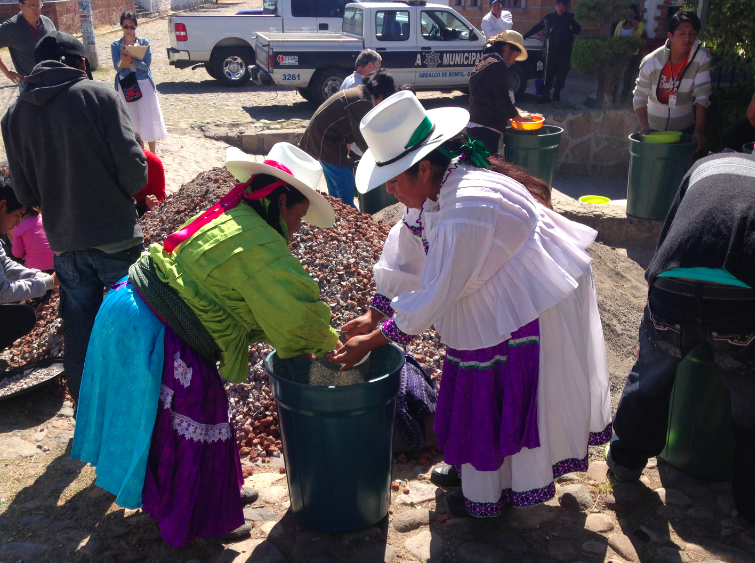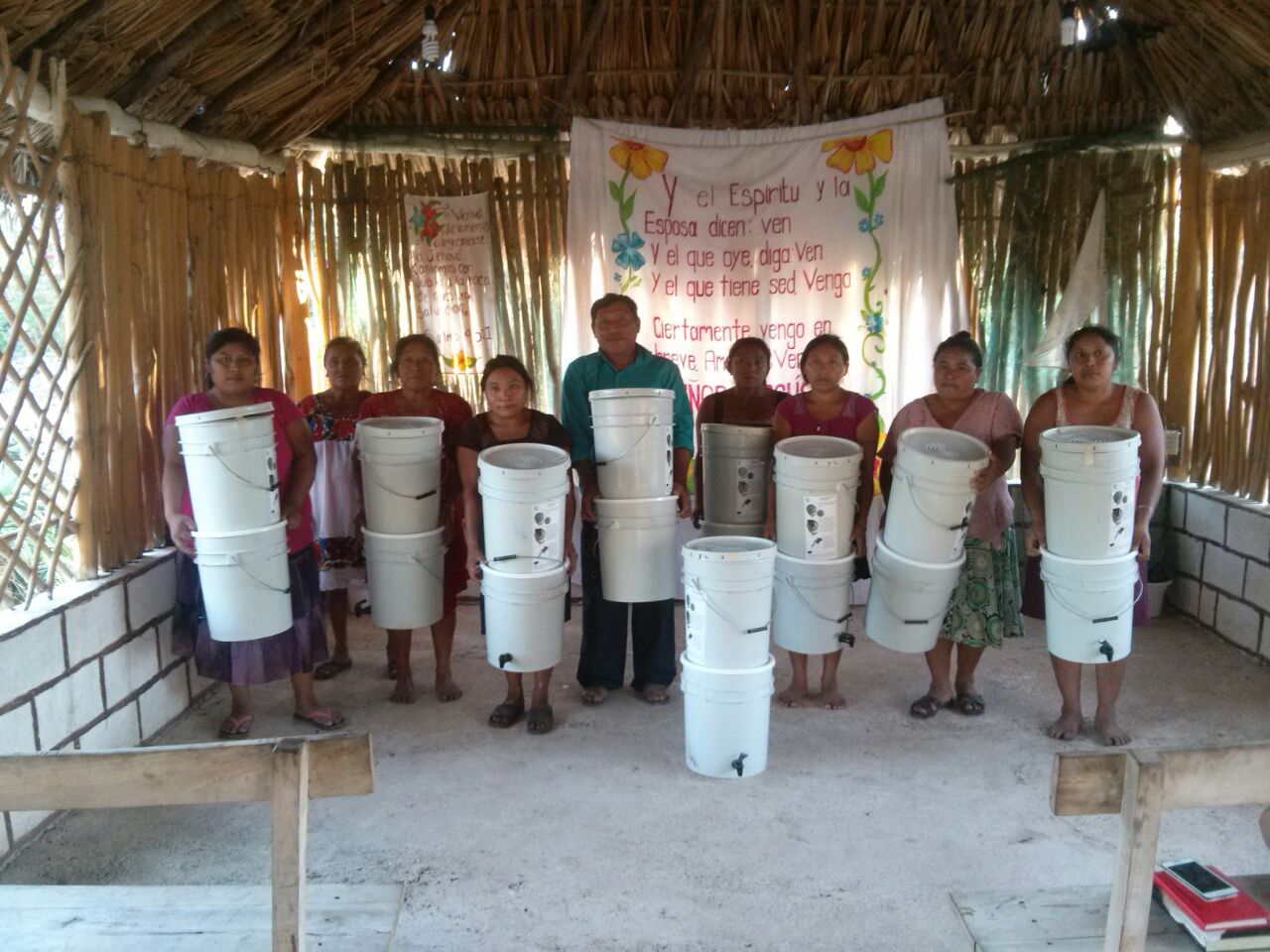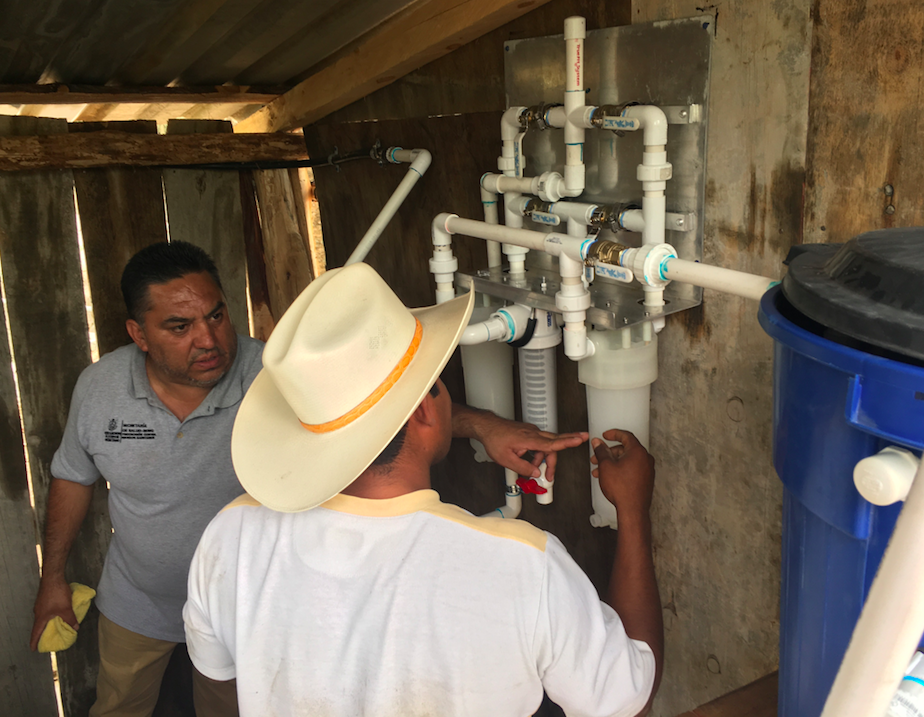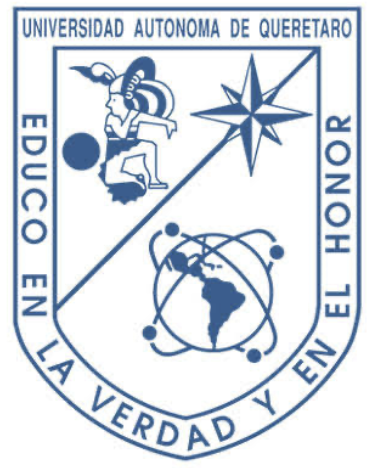View here one of Aqua Clara’s recent projects with Ford Motor in Hermosillo, Mexico. Also, view our ongoing project with University Autonomous Queretaro (UAQ) on arsenic and heavy metal remediation in the Sierra Gorda, Queretaro, Mexico here.
Our story in Queretaro, Mexico begins in 2008 when Bob McDonald traveled to there with Dr. Alfredo Gonzalez, Vice Provost at Hope College in Holland. Hope has several exchange programs with UAQ and Alfredo thought Aqua Clara could help the state deal with its water contamination problems, the major ones relating to arsenic and fluoride poisoning. At the time the main ACI technology was biosand filters, which are not effective in addressing arsenic or fluoride. Bob kept the channels open in anticipation that our research and development program was close to finding a solution to these issues, beginning with arsenic.
While this R&D program was producing hoped-for results, Harry Knopke, ACI President, visited UAQ and Doctora Hilda Romero, Senior University Professor and Director of the University’s multi-disciplinary initiative to address the needs of the state’s indigenous populations. They developed an MOU that identifies Aqua Clara as the University’s water resource for this initiative. This MOU has resulted in several trainings for University faculty and staff in the construction, installation, and management of ACI technologies. We also began the first phases of what is expected to be a long-term effort to bring clean water technologies to all indigenous villages in the state.
Workshop participants learned all aspects of the construction and installation process, beginning with sifting and cleaning sands to be used in biosand filters and sand pre-filters for hollow membrane installations. We subsequently conducted a weeklong training and installation project in San Ildefonso, one of the poor villages mainly comprising indigenous farmers.
We also installed facility systems in several schools. Our long-term agenda is to outfit all rural schools serving poor indigenous populations and to do so through support from a combination of governmental and private sources. There is also a demonstrated track record in Mexico (and elsewhere, for that matter) of a known method to remove arsenic from water effectively and inexpensively. However, because Mexico and Queretaro in particular have significant regions of arsenic poisoning, we believe a demonstration and evaluation of ACI arsenic removal technologies in Queretaro, already supported by the West Foundation, will lead to future support from local agencies and organizations.
In June, 2015, Harry Knopke participated as one of several international faculty members teaching in the University Law School’s intensive graduate program in bioethics. This program is jointly sponsored by the Engineering, Health Sciences, and Social Sciences schools and is aimed at providing students with in-depth analyses of a range of ethical issues facing Queretaro, Mexico, and the world. Harry’s two days centered on the ethics of water access, distribution, control and use. He also illustrated ethical applications of water technologies by presenting a delineation of Aqua Clara’s work in developing countries.Following the intensive, Harry signed on behalf of Aqua Clara a five-year academic agreement with the Universidad, specifically its law school, to contribute to the ongoing development of the Universidad’s academic programs.
Since then, and prior to the global pandemic, ACI and UAQ have installed multiple arsenic/heavy metals community and household filters in Sierra Gorda communities, and in 2023 signed an updated agreement to continue to work together in Queretaro, primarily in rural and under served areas, deploying ACI technologies and engaging in joint training, evaluation, and research programs.





 English
English Spanish
Spanish